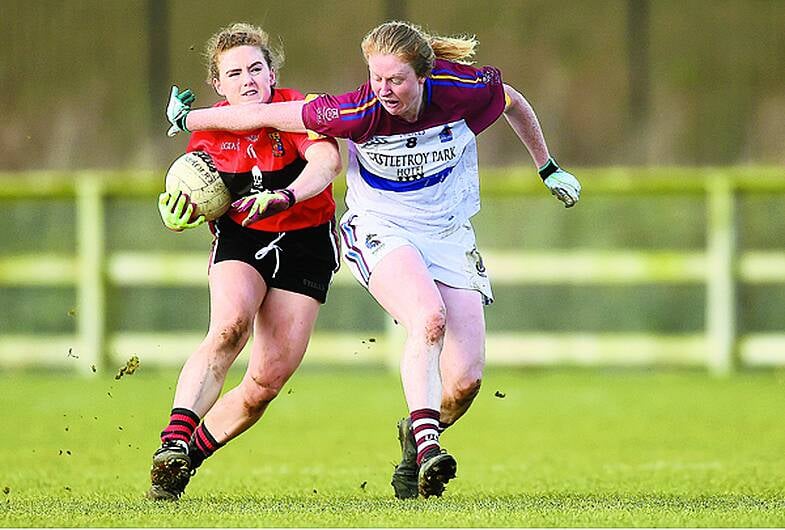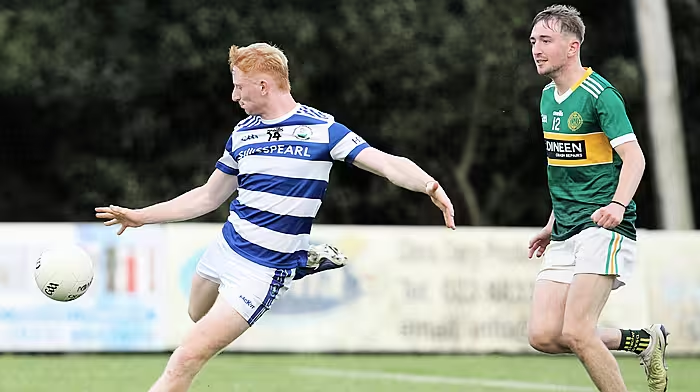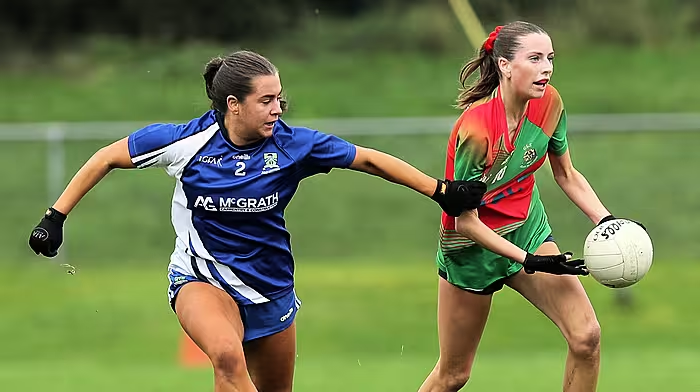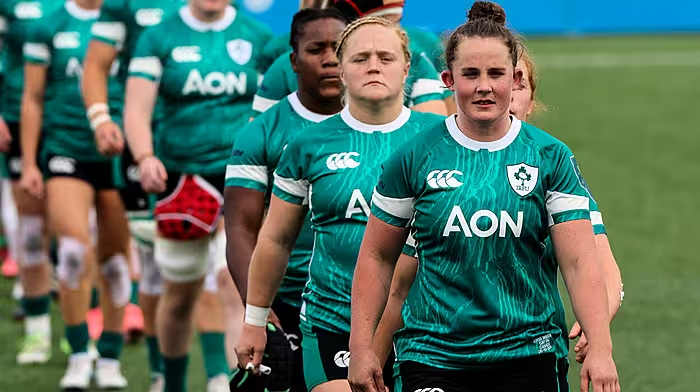It's the kind of situation we thought we had seen the last of, that of first-class sportswomen having to make a choice between competing interests.
By Jennifer O'Leary
IT’S the kind of situation we thought we had seen the last of, that of first-class sportswomen having to make a choice between competing interests.
Naturally, the presence of strong personalities in the middle of it all added to the intrigue.
In one corner, the fiery Paudie Murray, manager of the Cork senior camogie team, and his opponent, the annoyed and frustrated Shane Ronayne, manager of UCC’s O’Connor Cup side. Sure to be a tense encounter and full of anger as both sides battle to set out their side of the story in a media frenzy. Ding, ding, ding, let the battle begin!
It was hard to avoid the recent media uproar when Libby Coppinger, Méabh Cahalane and Hannah Looney were placed in a precarious position. With UCC playing UL in the O’Connor Cup semi-final on the Saturday and Cork facing Limerick in the national camogie league semi-final, a choice had to be made.
The girls couldn’t play in both, so they had to weigh up the possibility of their inter-county career suffering or else their college scholarships being jeopardised.
There have been many different stories circulating and when a story hits the media like this one, we tend to take one side over the other. Initially, I did not think of the UCC manager Shane Ronayne or Paudie Murray in all of this, my first thoughts went to the three girls.
It should never have got to this point. Fixtures clashing is an age-old story, the chapters documenting ladies’ fixture clashes are building at this stage, and the only people who suffer the most are the players. Players who make the sacrifice and choice to play with club, county and college. They shouldn’t then have to choose between two major games in their lives, which they all would have wanted and deserved to play. I simply cannot put into words how wrong this is.
My thoughts then went to the two teams who were anxious and worried to see if they would have those girls available. Those players too would have suffered, knowing that their chances of victory would be significantly reduced without their team-mates. It would not be the best preparation for any team with that hint of doubt circulating in their brains, not to mind being forced to play without them completely!
I played for four years with my UL in the Ashbourne Cup as well as playing inter-county during that time. I count myself lucky to have had the opportunity to play with and against girls who are your teammates in college but soon become your opponents in the inter-county scene.
Luckily, and rightly so, I never had to choose between playing with either side. It never was a problem. Even trainings were scheduled to ensure that a clash would not occur.
And it’s hard for me to say what side I would choose if I were to rewind the years and put into that unfair position. I valued both teams equally at that time and still do. In a nutshell, there should never be a situation where players should choose at this stage of the year or any stage of the season.
So, we find ourselves absorbed into a media frenzy where two managers, who are obviously furious and annoyed to be in this position in the first place, are blaming one another for the entire mess.
It’s newsworthy, it’s important to let the public know this is what has happened but what of the girls who were put into this unfavourable position? The girls apparently were told that, if they played with UCC, their inter-county camogie careers could suffer while, if they didn’t play with UCC, their sports scholarships could be under review as they have an obligation to play for their college if in receipt of this bursary.
Libby Coppinger, a stalwart for Cork camogie in last year’s successful season, decided she would play with UCC.
I say fair play to her.
She decided to play because this is what she is programmed to do. She has trained to play, to help her team as a unit to perform. Sadly, as a repercussion, she could not feature with her county the next day. I would also take my hat off to Hannah and Méabh for playing in their inter-county league final.
It’s so infuriating that they had to miss the biggest game their college would play for the entire year and I am sure their win in the league the next day was tinged with a note of annoyance too.
There are no winners in all of this, no matter what trophy you lift. We seem to be going back ten steps instead of moving forward and listening to problems that are trouble-shooted and identified in fixtures early in the year.
A compromise or solution is often not reached and even suggesting that girls should play two days in a row in my estimation is ludicrous. When is the welfare of the players going to be acknowledged and placed to the forefront in all of this?
You can’t point the blame at any one person. I feel for both teams and management to have experienced the negativity and stress in all of this. It certainly isn’t showcasing camogie and college football in the most positive light, especially with the many news articles that followed the games.
Very little of the coverage focused on the actual game played by the players, instead it strongly highlighted the fixture clash and the blame game. Women in sport do not need this negative coverage so why are fixtures not looked at in more detail at the start of the year to ensure a realistic plan B can be acted and agreed upon.
I wonder how many scenarios like this will occur before players decide enough is enough and collectively refuse to play. My question then will be, what players will fulfil those fixtures then?










